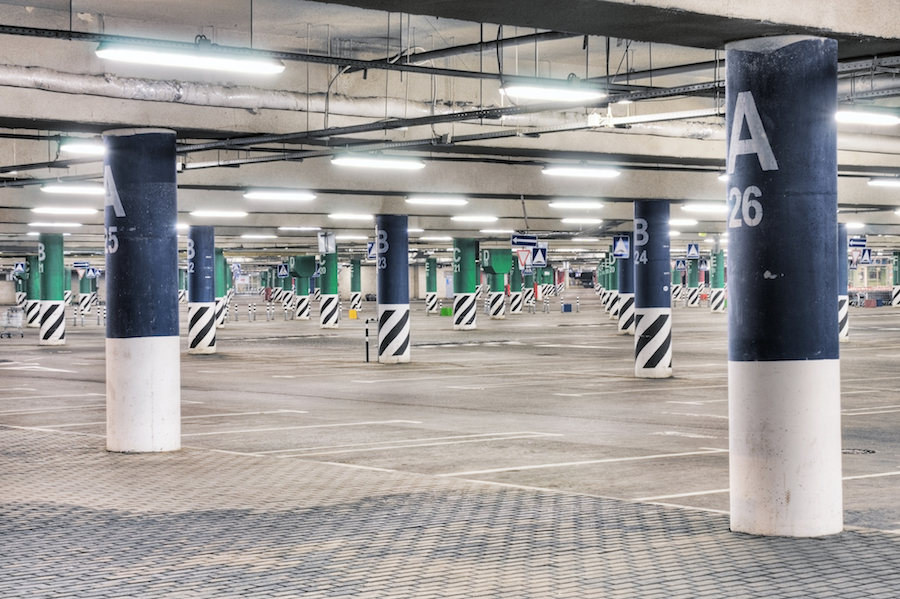Use of corrosive inhibitors in parking garages

Parking garages are a fantastic solution for maximizing vehicle parking in space-limited areas. However, anyone who manages or owns one knows the high construction and maintenance cost that come with them.
Because of this, it is essential that owners have a well-developed maintenance plan that emphasizes preventative maintenance along with routine maintenance.
Corrosive inhibitors are a cost-effective preventative tool that can extend the life of your parking garage.
Anode corrosive inhibitor
Perhaps no single element has more destructive capabilities than salt. When de-icing is needed in the parking garage or vehicles are tracking it in on their tires, salt can degrade your structure over time.
An anode occurs when there is a break in the concrete surface, and salt (chloride) comes into contact with the steel rebar. Ionization begins on the rebar, which results in rust. This sends a current to the cathode, or the part of the rebar that is not rusting. This passing of the current back and forth results in further degradation of the steel rebar, which can ultimately result in its failure.
An anode corrosive inhibitor provides a sacrificial metal separate from the steel rebar so that it corrodes before the structural metal.
Surface-applied corrosive inhibitor
Another way to protect the metal structures inside your parking garage is a surface-applied corrosive inhibitor. Just like its name sounds, this is a coating applied on surfaces that repels water and chemicals to prevent infiltration.
These coatings can be applied on existing concrete and new construction as well. However, they are most effective on new, cured concrete surfaces.
Be sure to speak with a professional about which options would be most effective for your structure. Implementing these preventative tools now will provide future cost savings and reduce down time for your parking garage.
